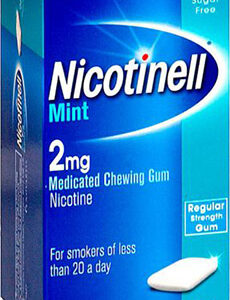Wellbutrin, also known by its generic name bupropion, is a medication primarily used to treat major depressive disorder and seasonal affective disorder. It belongs to the class of drugs known as aminoketones and acts as a norepinephrine-dopamine reuptake inhibitor (NDRI). Wellbutrin works by increasing the levels of norepinephrine and dopamine in the brain, thereby balancing the chemical imbalances associated with depression.
This medication is available in the form of extended-release tablets and is usually taken orally. The dosages vary depending on the condition being treated and the individual’s response to treatment. It is important to strictly follow the prescribed dosage and frequency as directed by a healthcare professional.
Safety Measures
Before starting Wellbutrin, it is crucial to consider certain safety measures and discuss them with your healthcare provider. This medication should not be taken by individuals who:
- Have a known allergy or hypersensitivity to bupropion or any other ingredients in Wellbutrin.
- Have a seizure disorder or a history of seizures.
- Are currently undergoing treatment with monoamine oxidase inhibitors (MAOIs) or have stopped taking MAOIs within the last 14 days.
- Have a current or recent history of an eating disorder, such as bulimia or anorexia nervosa.
- Have abruptly stopped the use of alcohol or sedatives, as this may increase the risk of seizures.
- Are taking any other medications that contain bupropion.
Pregnant and breastfeeding individuals should also consult their healthcare provider before using Wellbutrin, as the potential risks to the fetus or nursing infant should be weighed against the potential benefits of the treatment.
Side Effects and Solutions
Like any medication, Wellbutrin may cause certain side effects. Common side effects associated with the use of Wellbutrin include:
- Headache
- Nausea or vomiting
- Dry mouth
- Trouble sleeping (insomnia)
- Decreased appetite
In most cases, these side effects are mild and temporary, but if they persist or become bothersome, it is recommended to notify your healthcare provider. In rare cases, Wellbutrin may cause more serious side effects, such as:
- Severe allergic reactions (rash, itching, swelling, severe dizziness)
- Unusual mood or behavior changes
- Signs of liver problems (yellowing of the skin or eyes, dark urine, persistent nausea or vomiting, abdominal pain)
- Seizures
- Increased blood pressure
If any of these severe side effects occur, immediate medical attention should be sought. It is important to promptly report any side effects to your healthcare provider to ensure appropriate management.
How to Use
Wellbutrin should be taken exactly as prescribed by your healthcare provider. It is typically taken once or twice daily, with or without food, depending on the formulation. It is important not to crush, chew, or break the extended-release tablet, as it should be swallowed whole to ensure proper release of the medication.
If a dose is missed, it should be taken as soon as remembered, unless it is close to the next scheduled dose. In that case, the missed dose should be skipped and the regular dosing schedule should be resumed. It is important not to take a double dose to make up for a missed one.
In the event of an overdose, it is important to seek immediate medical attention. Overdosing on Wellbutrin can lead to serious complications, including seizures, hallucinations, rapid heartbeat, and loss of consciousness.
Understanding Drug Interactions
Wellbutrin may interact with other medications, resulting in potentially harmful effects or reduced efficiency of the drugs involved. It is important to inform your healthcare provider about all the medications, including prescription, over-the-counter, and herbal products, that you are currently taking.
Some common medications known to interact with Wellbutrin include:
| Medication | Type of Interaction |
|---|---|
| Monoamine oxidase inhibitors (MAOIs) | Increased risk of serious reactions, such as high blood pressure, seizures, and serotonin syndrome |
| Antipsychotics | Potential for lowered seizure threshold or increased risk of seizures |
| Tricyclic antidepressants | Increased risk of seizures |
| Antidepressants (SSRIs/SNRIs) | Potential for increased risk of serotonin syndrome |
It is important to discuss potential drug interactions with your healthcare provider before starting Wellbutrin to ensure the safe and effective use of this medication.
The Answers You Need
-
Q: Can Wellbutrin be used to treat anxiety disorders?
A: Wellbutrin is primarily indicated for the treatment of major depressive disorder and seasonal affective disorder. It is not approved for the treatment of anxiety disorders. -
Q: How long does it take for Wellbutrin to start working?
A: The therapeutic effects of Wellbutrin may not be noticeable immediately. It can take several weeks of regular use before the full benefits are experienced. It is important to continue taking the medication as prescribed, even if improvements are not immediately apparent. -
Q: Can Wellbutrin cause weight gain or weight loss?
A: Wellbutrin is generally associated with weight loss or minimal weight gain. However, individual responses may vary. It is always important to discuss any concerns about weight changes with your healthcare provider. -
Q: Can Wellbutrin be used in children and adolescents?
A: Wellbutrin is not approved for use in children and adolescents under the age of 18. Its safety and effectiveness in this age group have not been well-established. -
Q: Is it safe to drink alcohol while taking Wellbutrin?
A: It is generally recommended to avoid or limit alcohol consumption while taking Wellbutrin. Alcohol may increase the risk of certain side effects, such as seizures, drowsiness, and dizziness.





Reviews
There are no reviews yet.